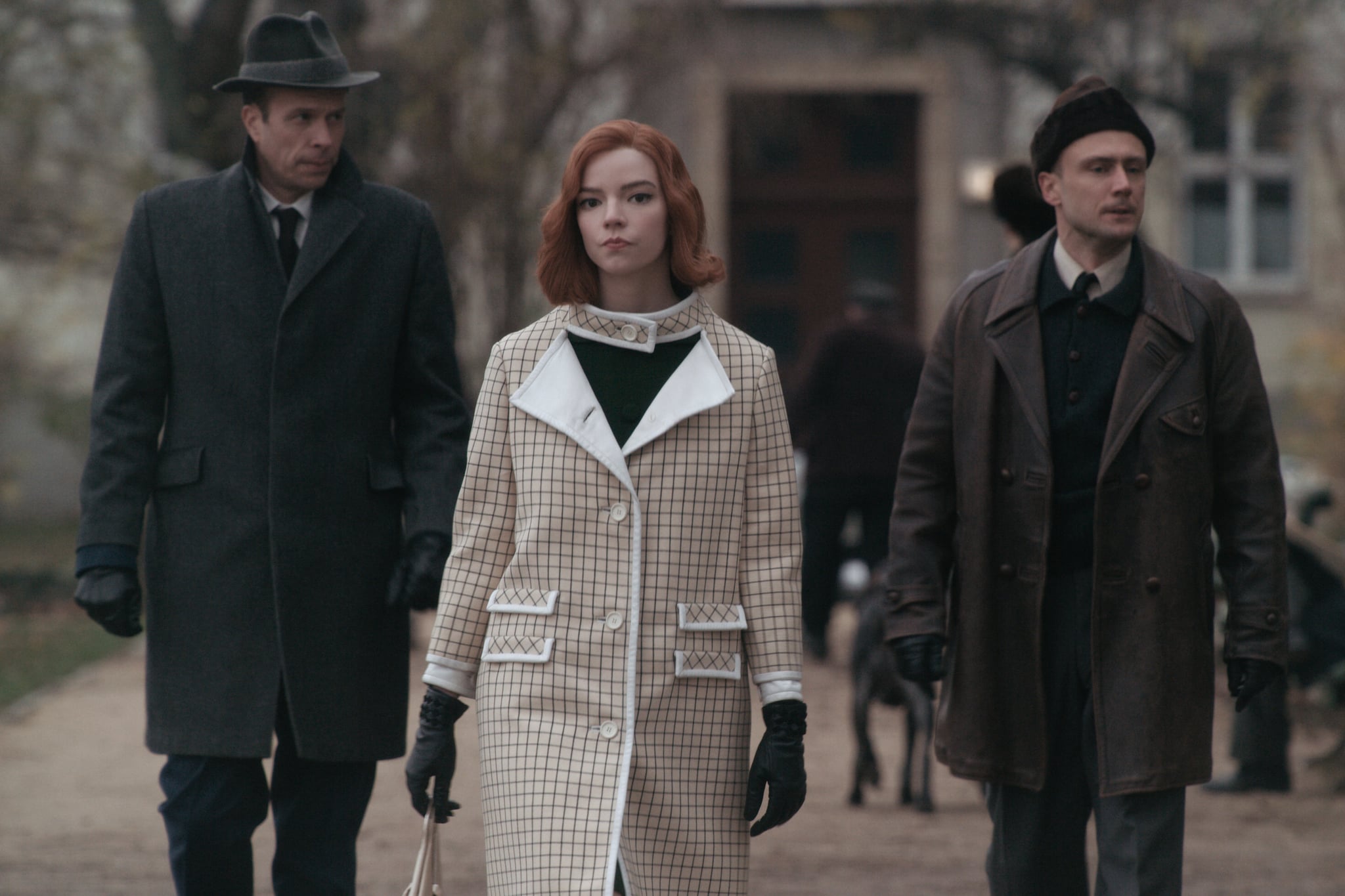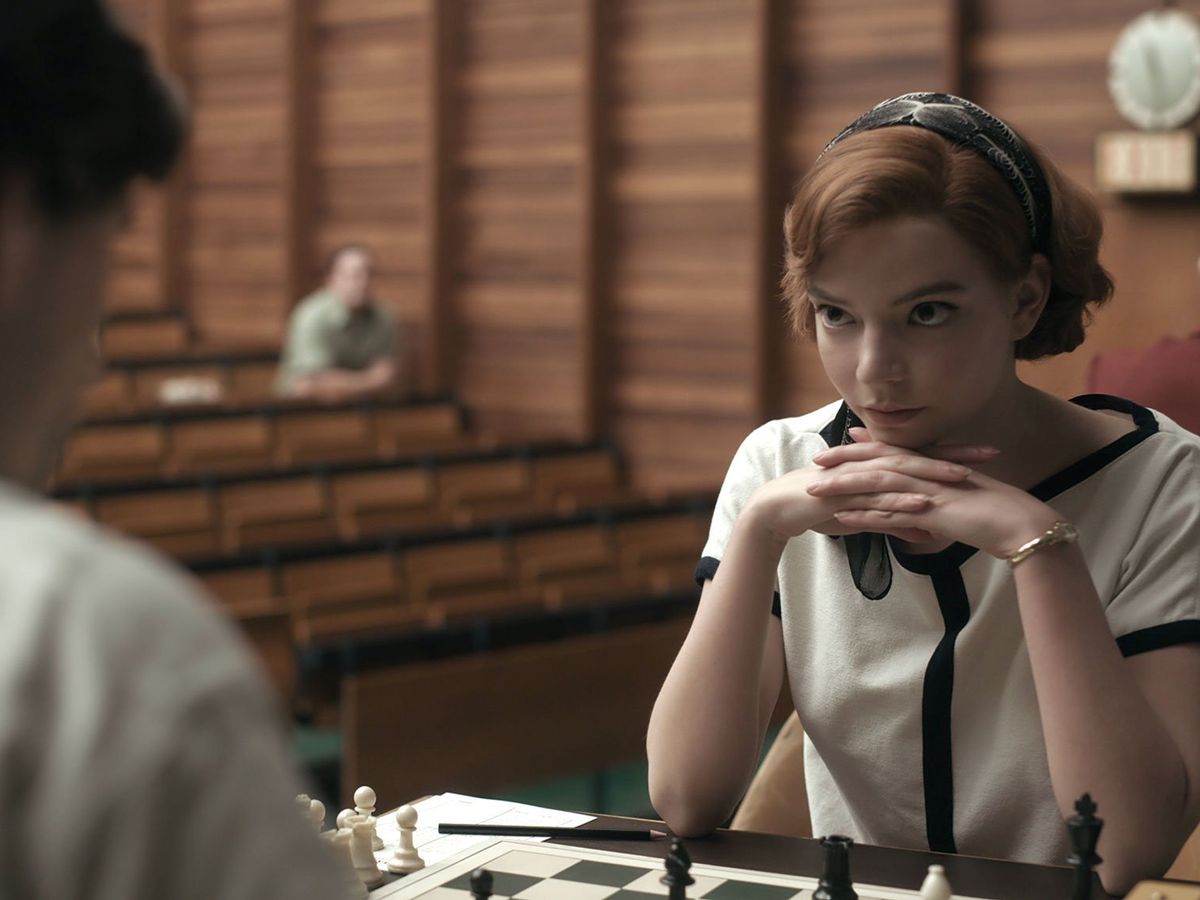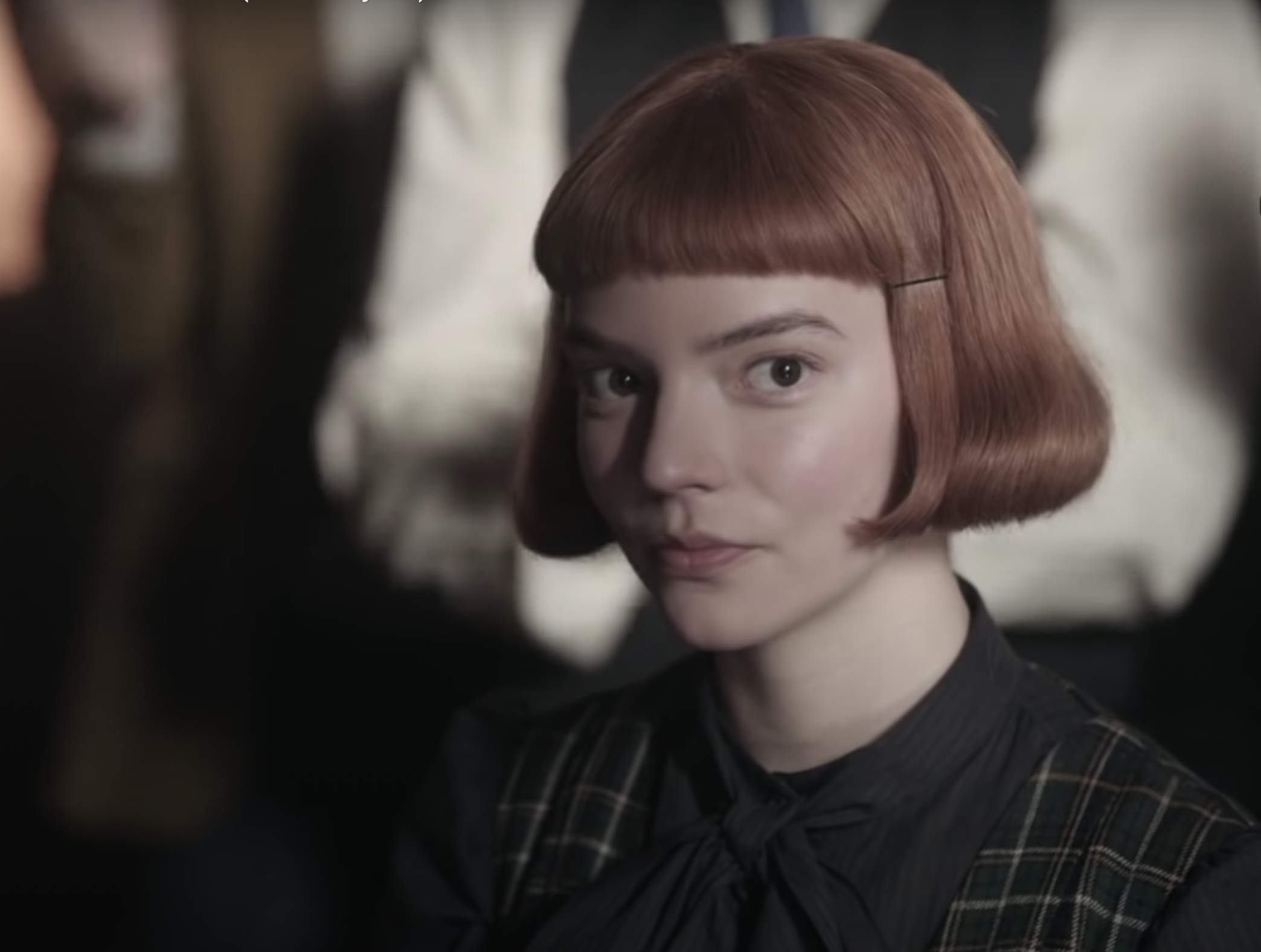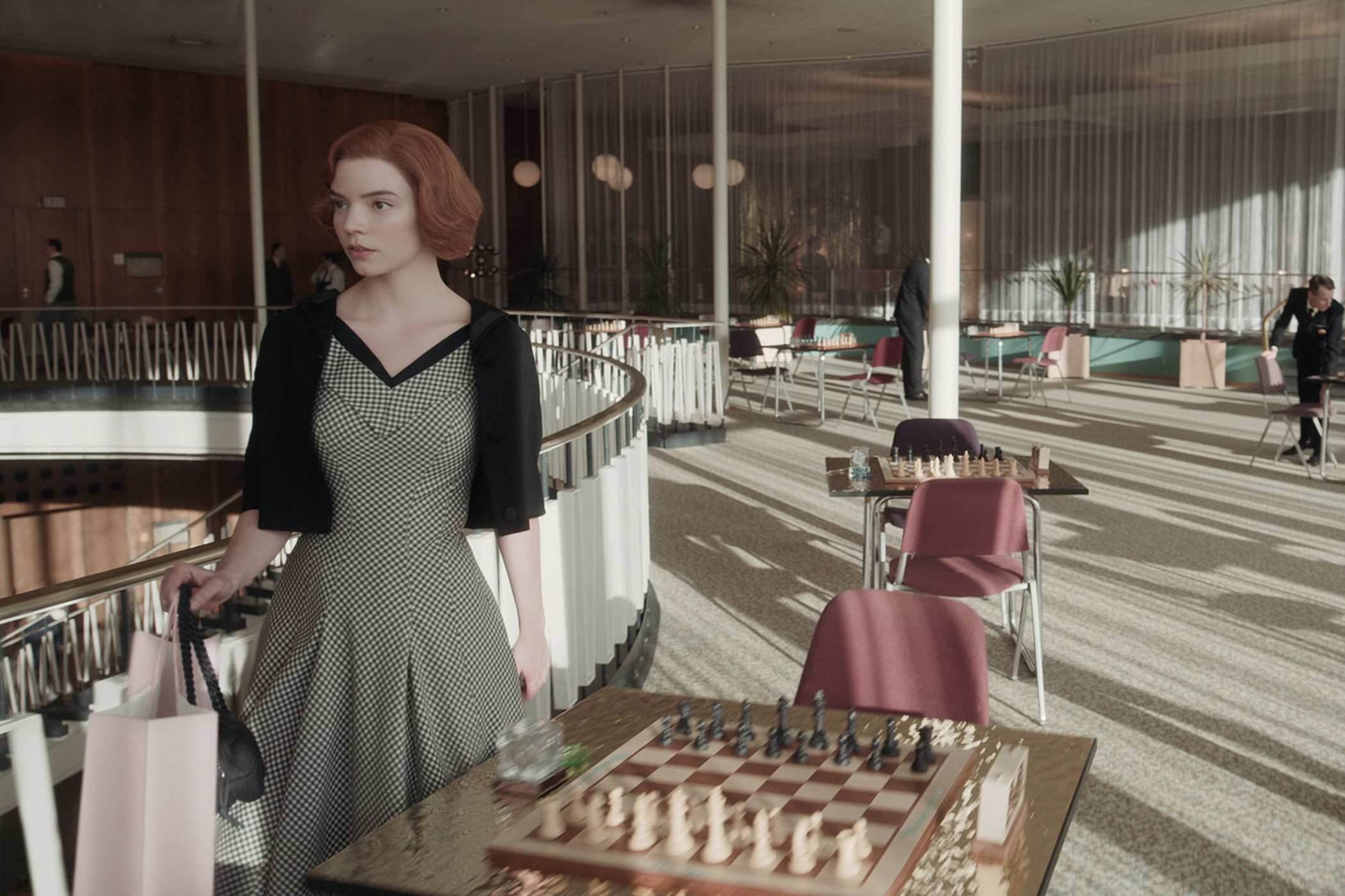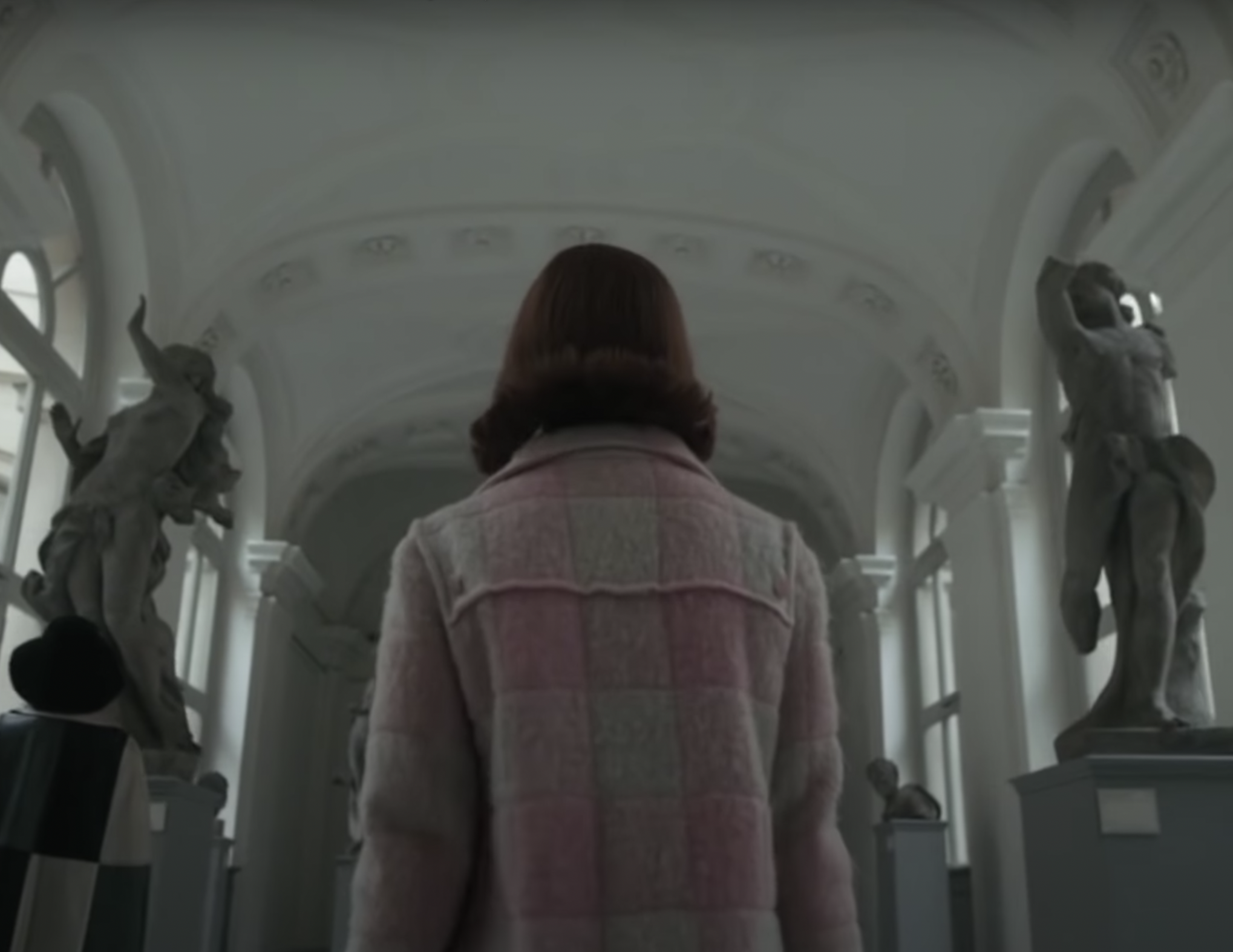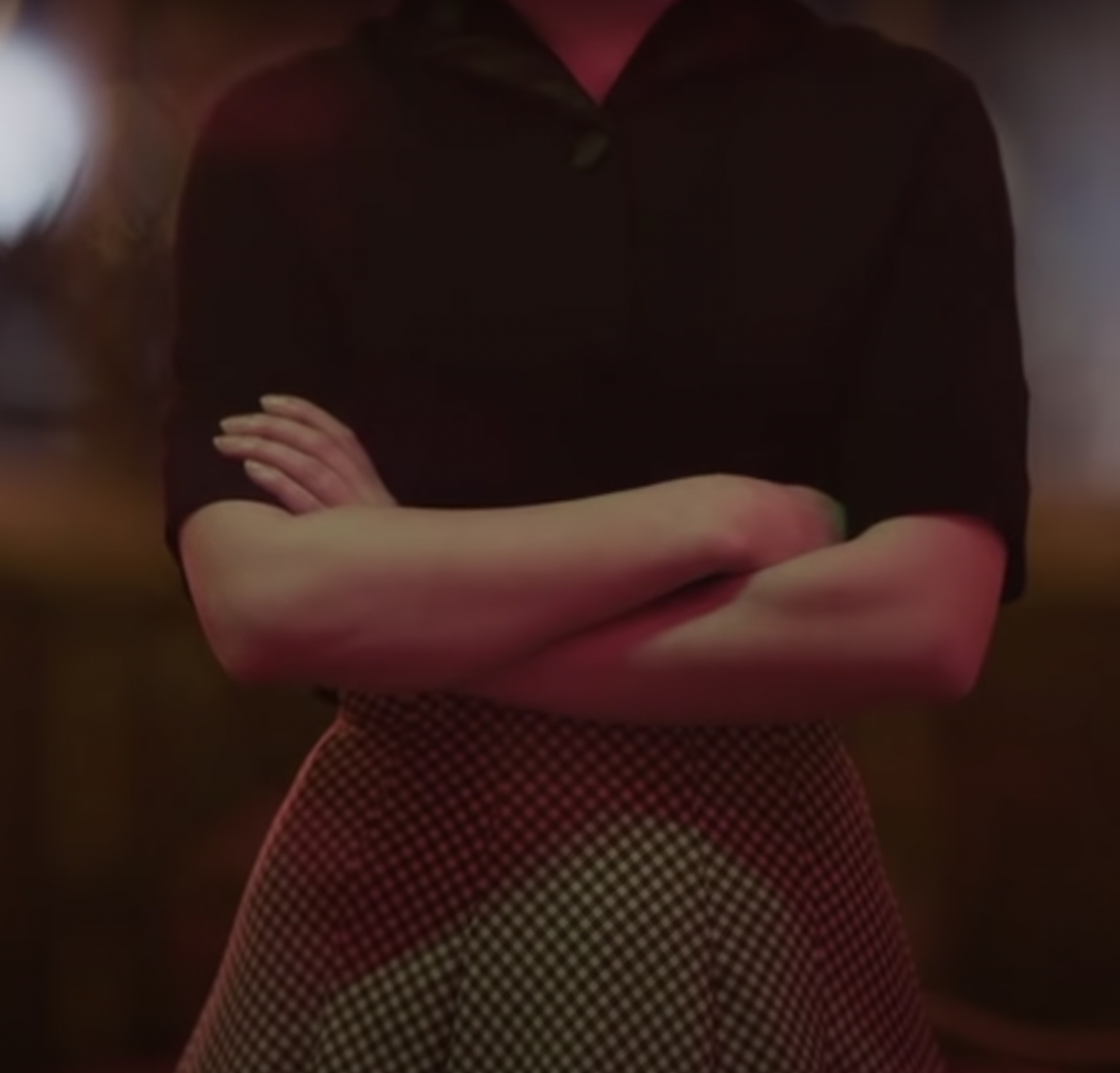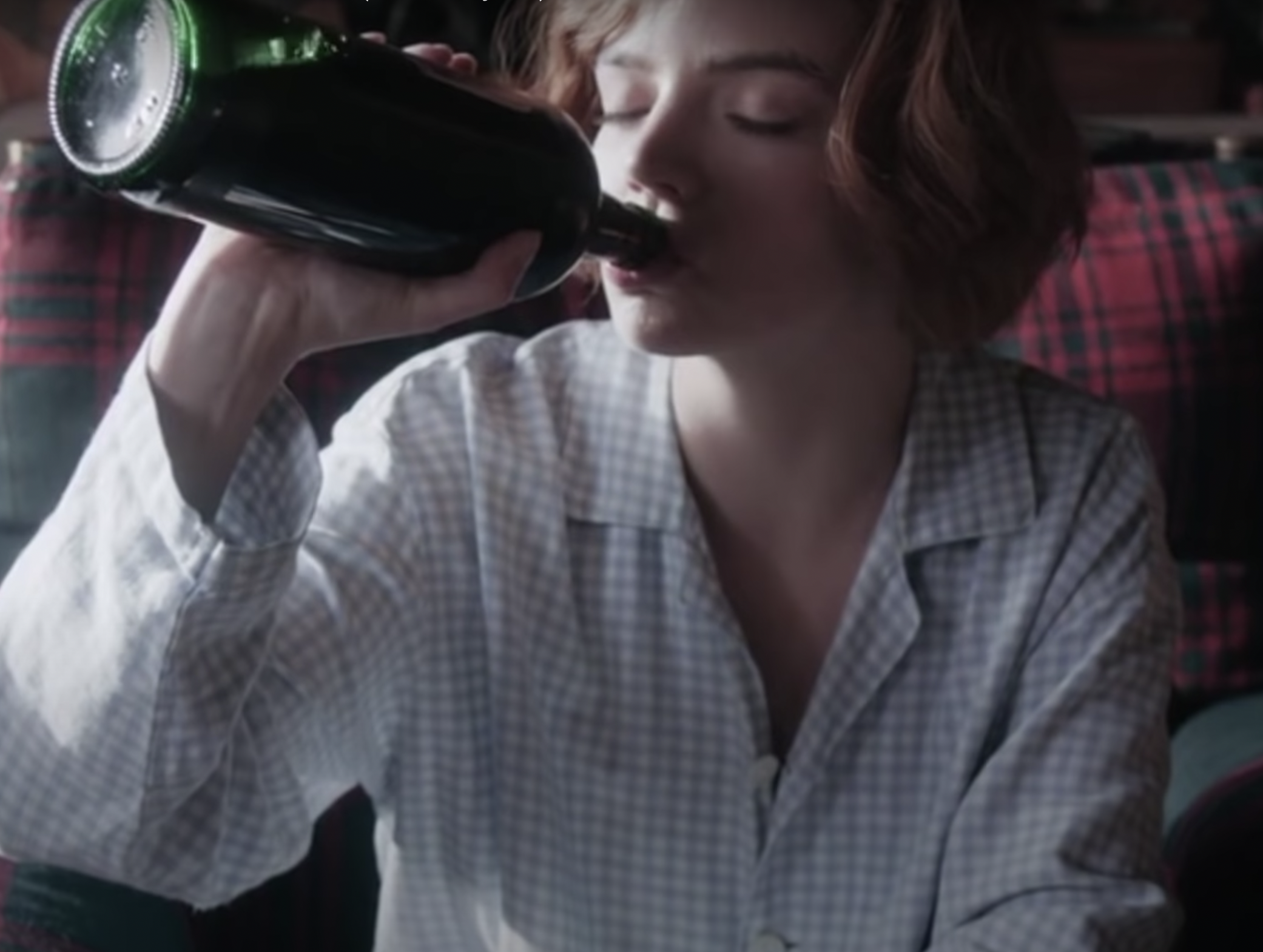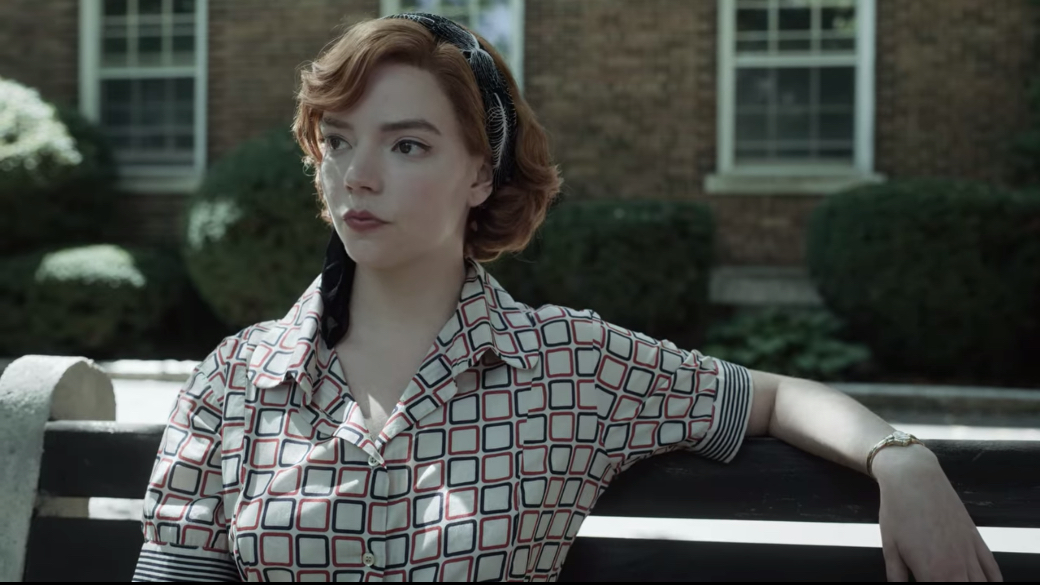Queen’s Gambit is a new Netflix miniseries about an orphan who becomes a chess prodigy, which has gotten widespread critical acclaim. It’s also received high praise for the fashion choices and how it was used to enhance the storyline.
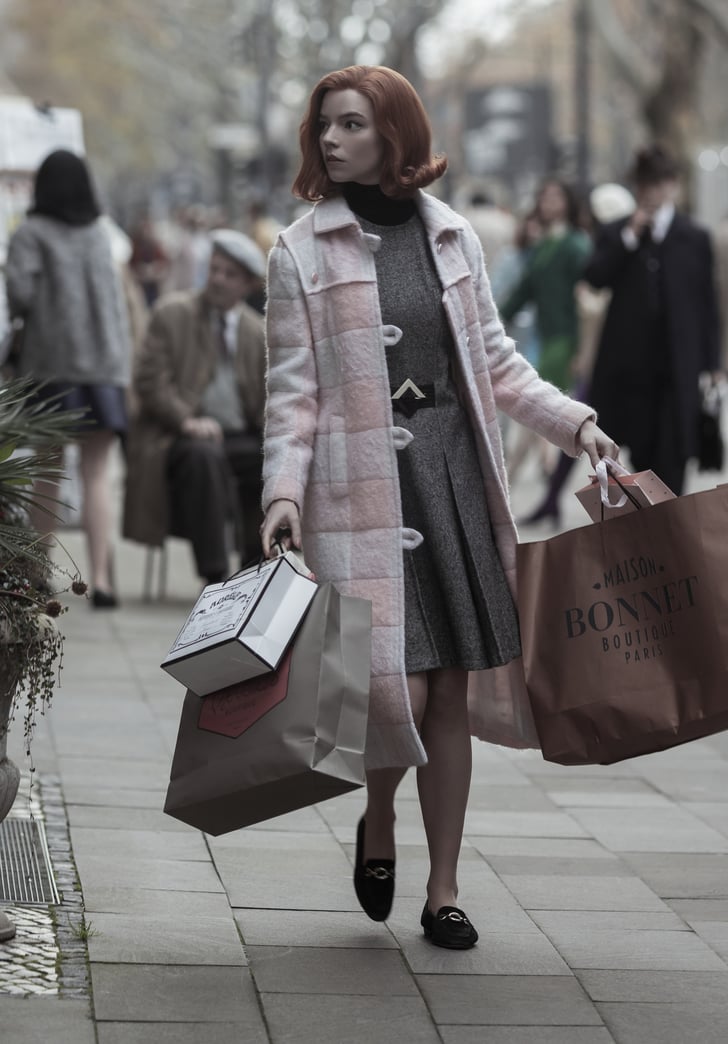
Queen’s Gambit is set in the 1960s and its period clothing has unexpectedly garnered far more attention than the supposed ‘fashion frenzy’ that Emily in Paris was promised to be. The protagonist Beth Harmon is an orphaned girl that has an affinity for chess, going on to dominate the heavily male environment–with style.
Take a look through some of Beth’s key fashion moments but warning: spoilers ahead!
1
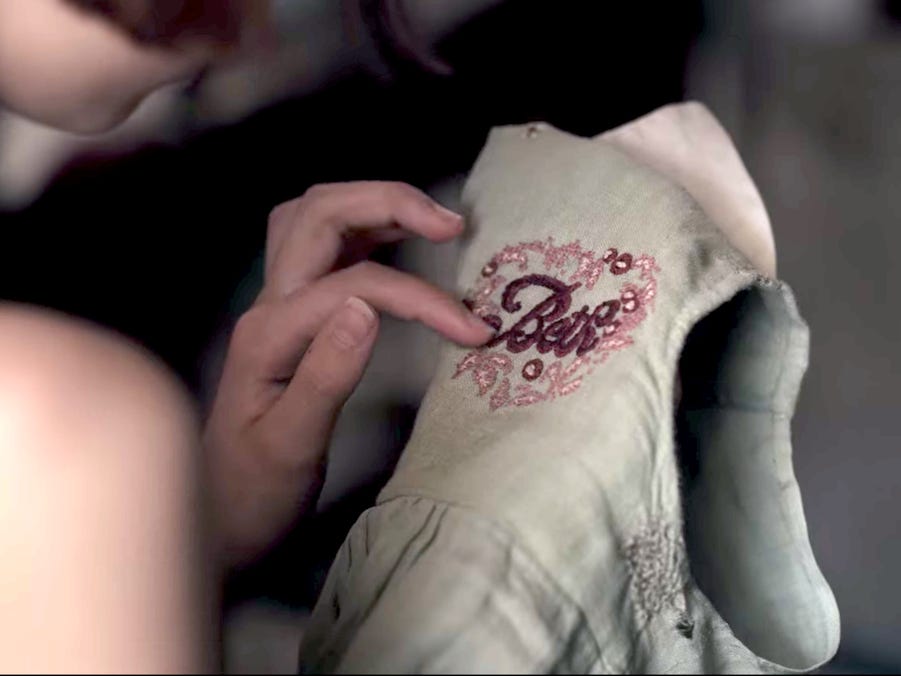
When Beth first goes into the orphanage, the headmistress forces Beth to give up the dress her mother embroidered with her name and is given a pinafore that is almost identical to the other children. She is deprived of her individuality, but this will later be recovered with her unique talent.

2
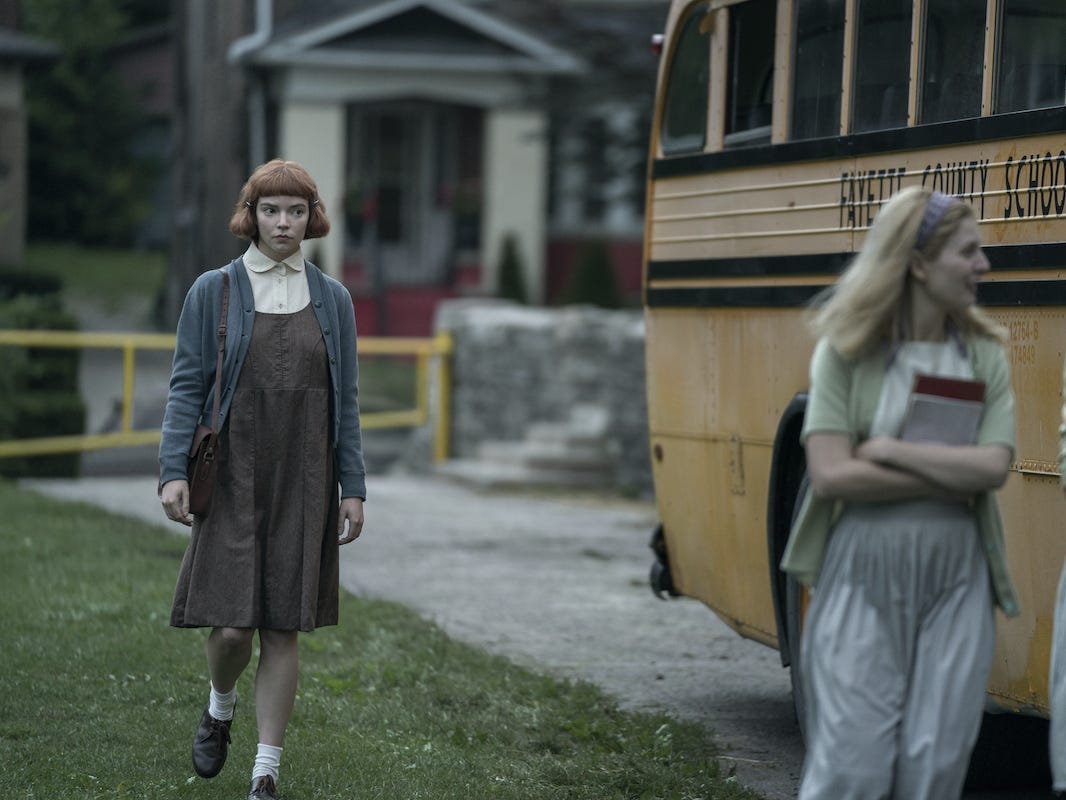
In Episode 2, Beth is still seen in ragged orphanage clothes (despite her adoption). She goes to her new high school where she is targeted and bullied by the popular ‘Apple Pi Club’ girls for her clothes. Beth can be seen enviously looking at other girls’ clothing in particular, the saddle shoes. Her early interest in fashion can be linked to the desire for more, which is why chess is not just a talent but a means of taking control of her life and its direction.
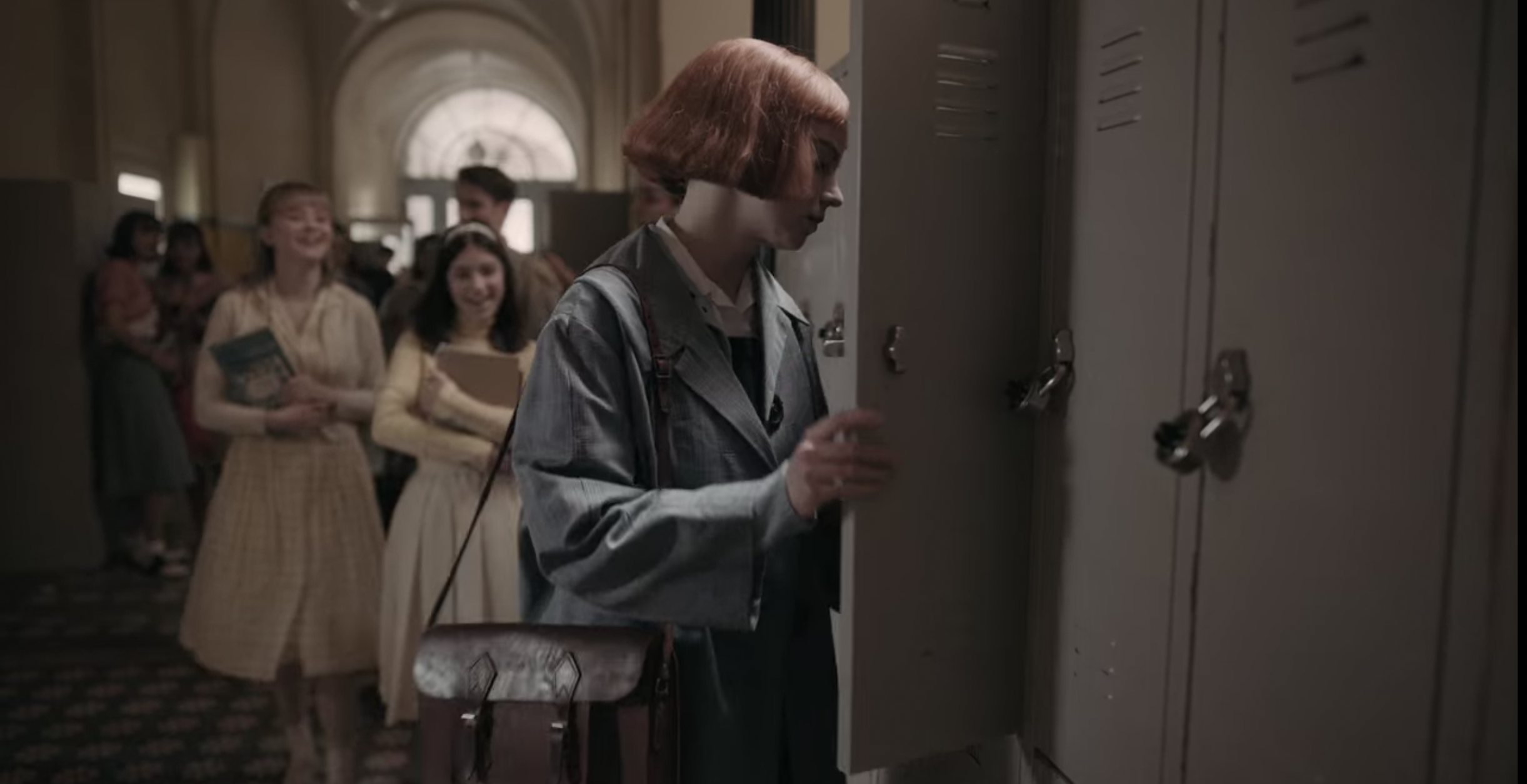
3
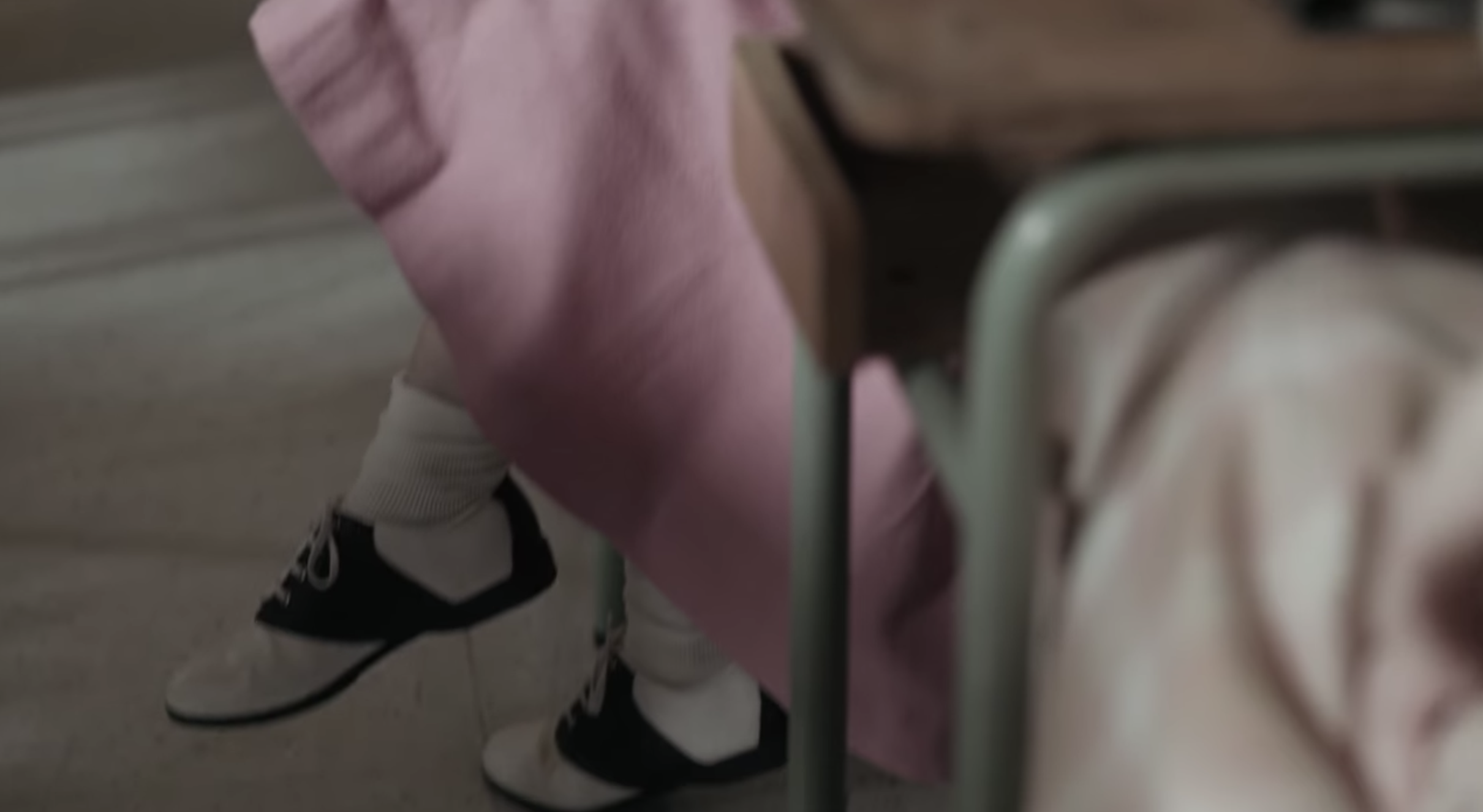
As she starts to win prize money for chess competitions, Beth begins to dress more stylishly, and the audience can visually see her mature and achieve success. A special purchase was the saddle shoes she finally managed to buy.
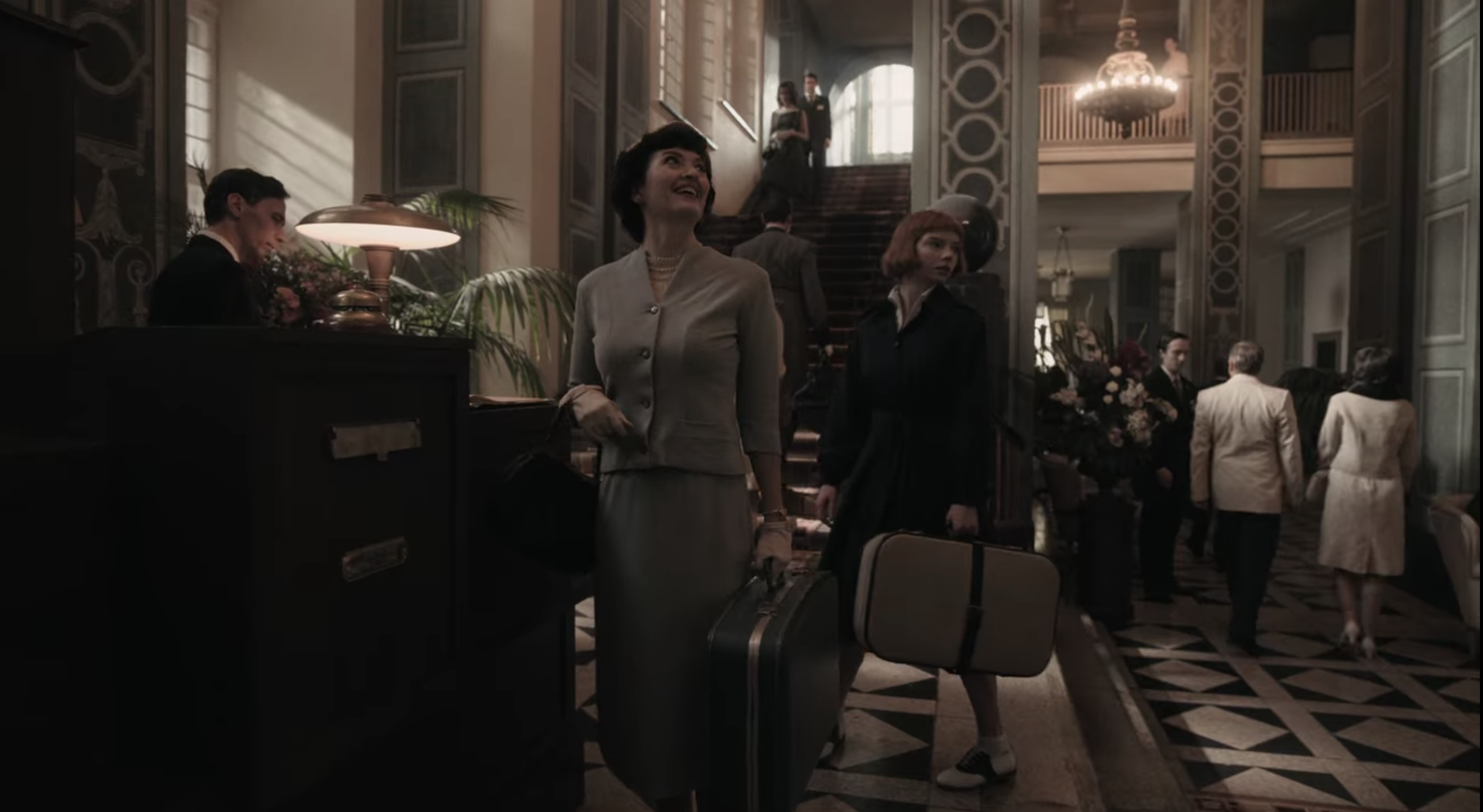
4
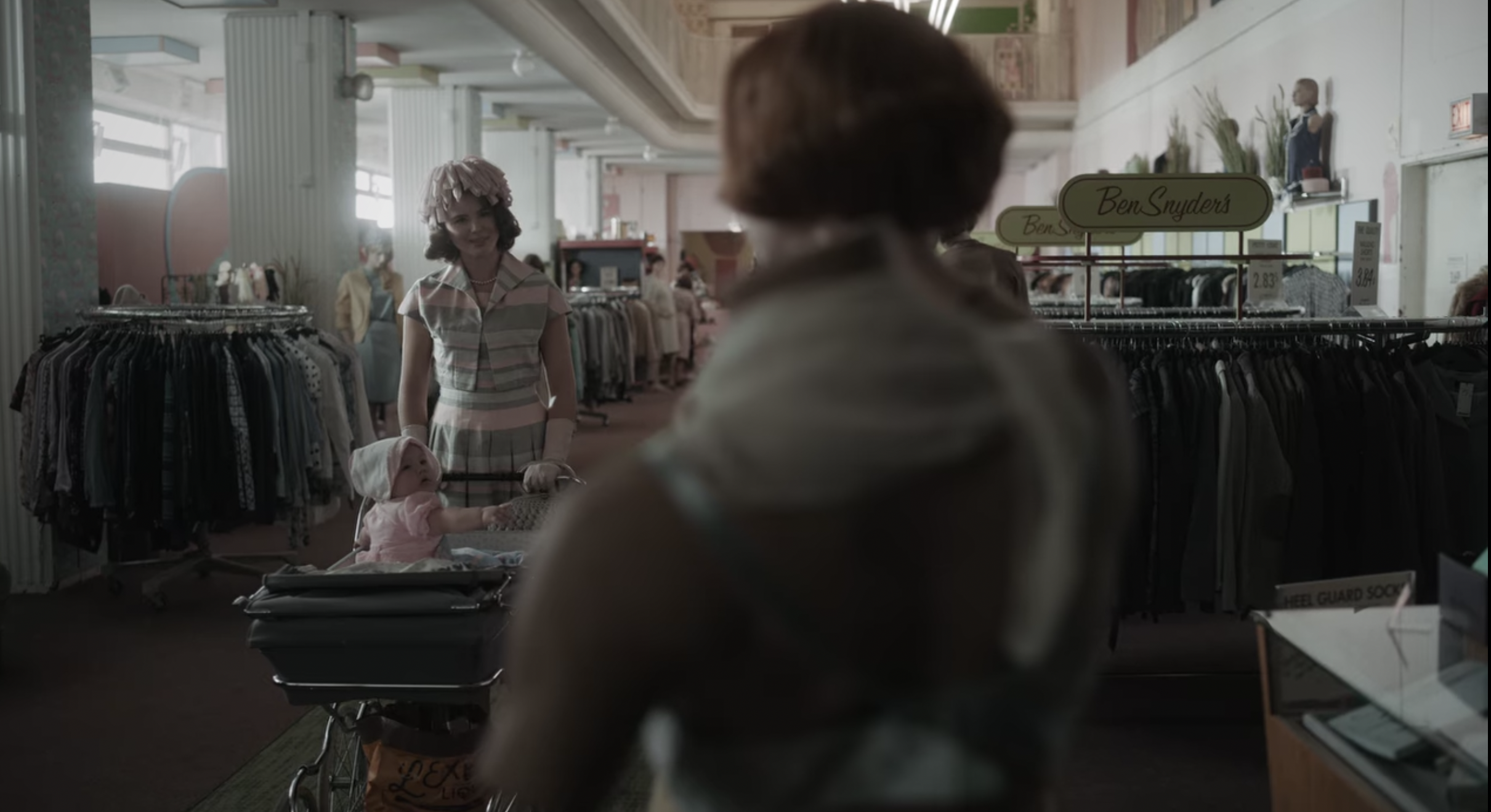
A poignant fashion moment is when Beth runs into a high-school acquaintance who used to humiliate Beth about her clothing choices. In the scene, Beth is in a mohair cardigan and jeans–a more modern and fashion forward silhouette that suits her free, independent lifestyle. Contrastingly, the former ‘popular girl’ is seen in the same fit-and-flare style dress that is now outdated, mirroring her fixed lifestyle and the rigidity of motherhood.
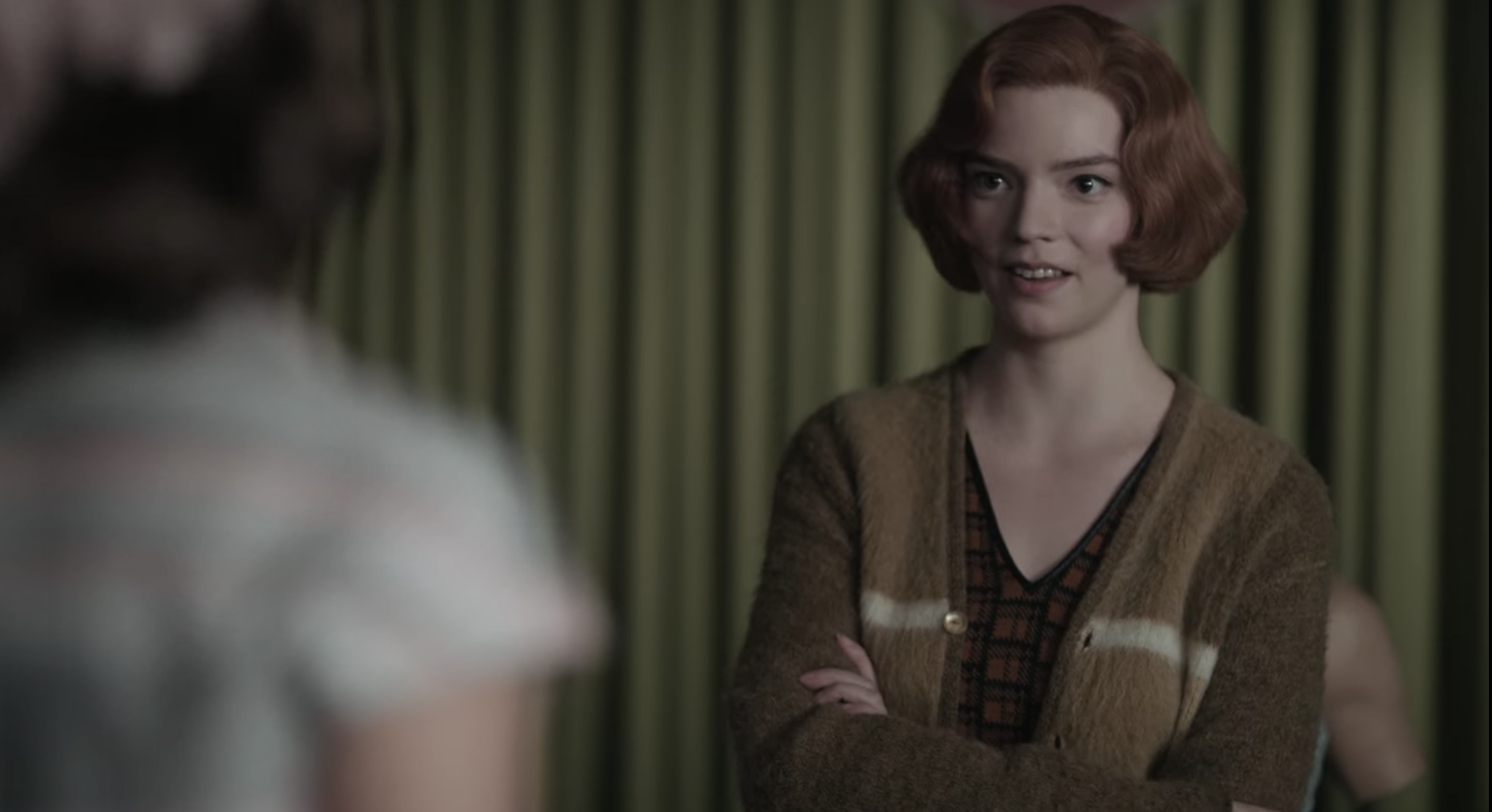
5
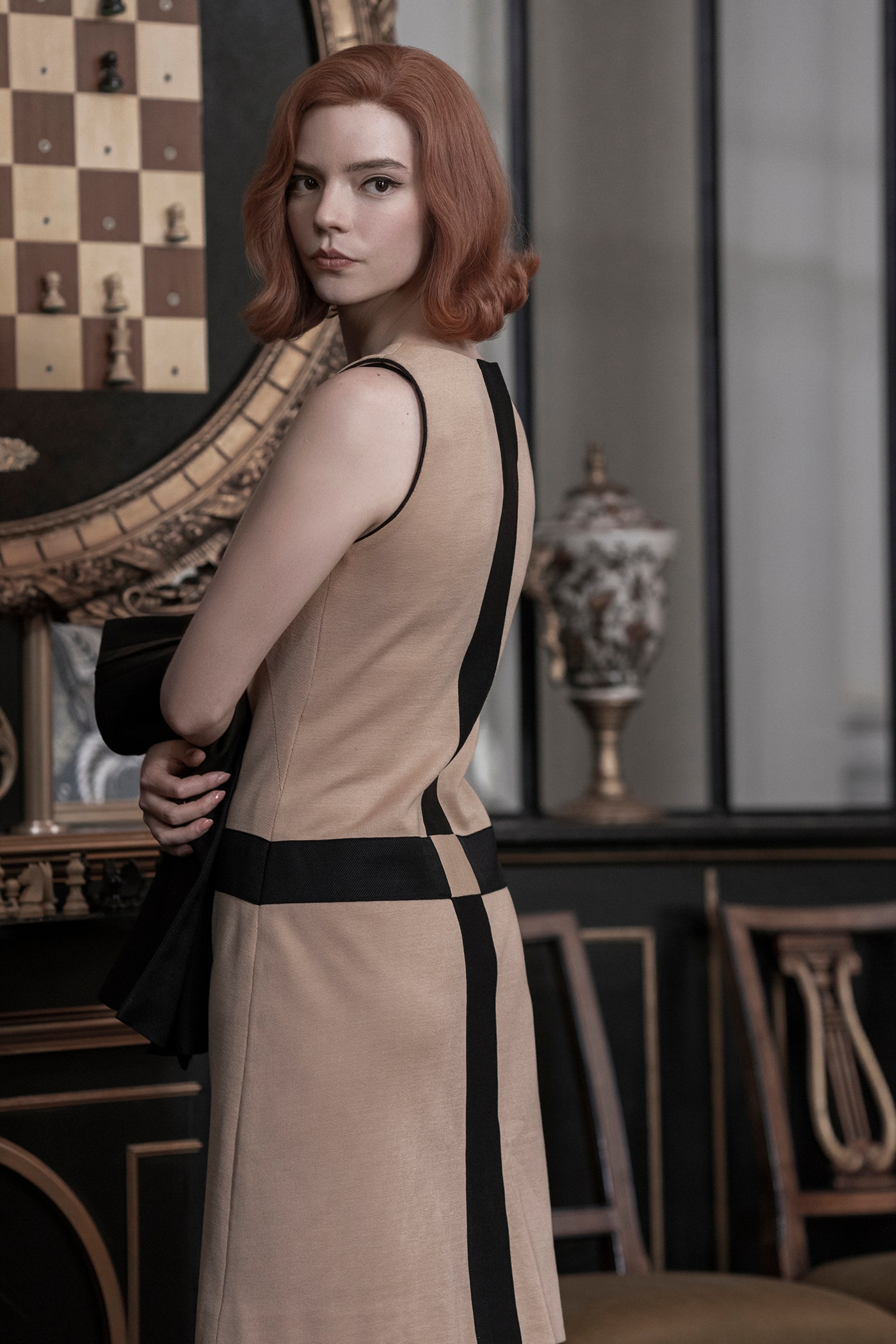
Time progresses, and Beth favours mod-looks and Parisian-inspired fashion as she begins to earn serious money and travels overseas. Despite the more streamlined silhouettes she still looks undeniably feminine: crucial for her character as she does not compromise her femininity to be taken seriously in a male-dominated world. If anything, she enhances this to further prove to her opponents that she is in fact a woman and she can in fact beat them.
6
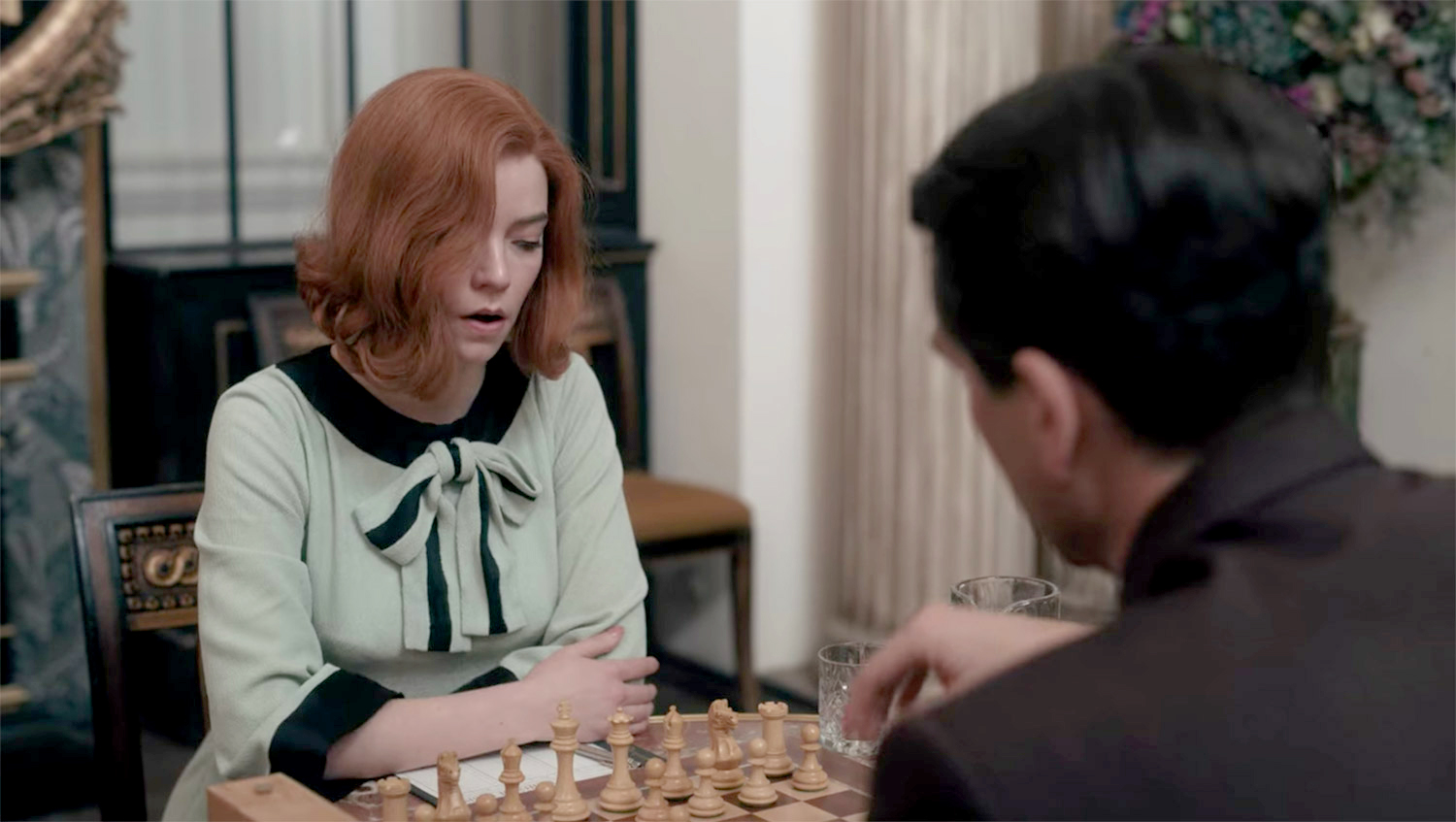
This is the scene where Beth is hungover and loses the all-important game against Borgov in Paris. She is seen in a green dress mod-dress with dark green accents. This colour scheme is a subtle nod to the tranquilliser pills she is addicted to, reinforcing how it inhibits her success.
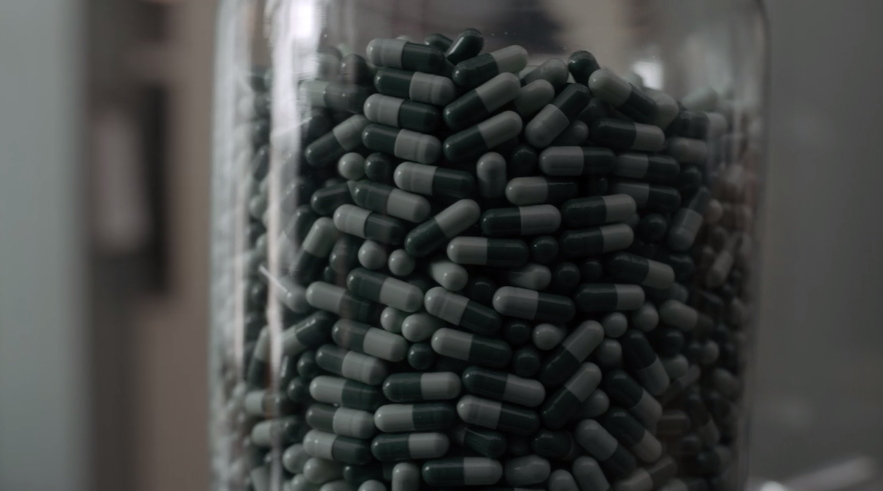
7
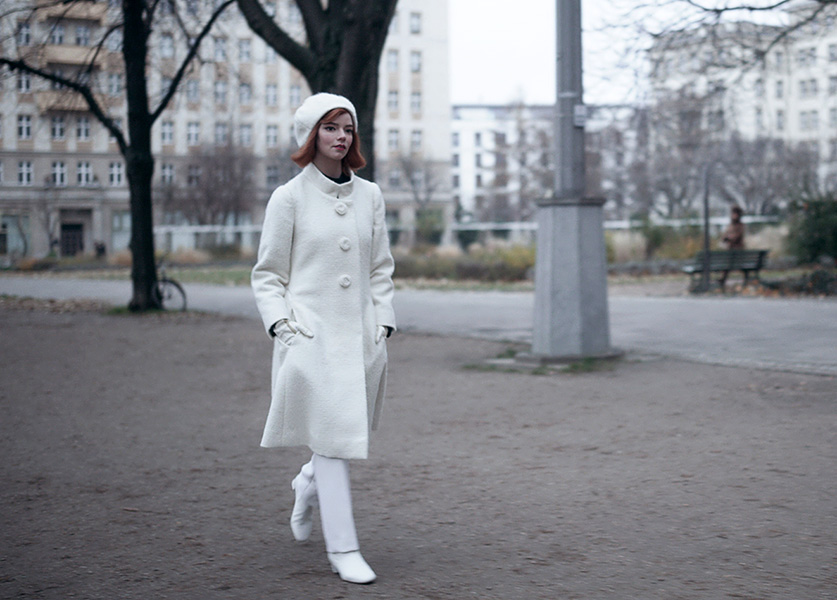
In the final scene, Beth is in white hat, coat, pants, shoes and gloves after her final win against Borgov in Russia. The look, particularly the bobble hat, makes Beth look like a white queen chess piece–the most important and powerful piece. It is particularly fitting considering how she has achieved her greatest professional goal, taken control of her addiction and also avoided being used as a political pawn.
8
Notable mention to all the times Beth wore geometric, chess-like motifs, ranging from squares, checks, block lines and plaid (many of which were already shown above). The costume designer Gabriele Binder said:
“[Beth] would intuitively choose to wear pieces that are connected to chess.”
Subscribe to FIB’s Weekly Alchemy Report for your weekly dose of music, fashion and pop culture news!


